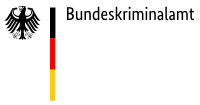Forensic Science Institute
The solving of crimes and the subsequent submission of evidence are made considerably easier, or in many cases only made possible in the first place, by knowledge from the fields of natural science and technology. With successful research and by means of the most modern scientific equipment and methods, evidence can be found and analysed, which can be more reliable as objective proof than witnesses’ statements or offenders’ confessions. The “Forensic Science Institute” of the BKA has at its disposal the required technical and scientific facilities to be able to compile and represent expert opinions at the request of police services, public prosecutors’ offices and courts.
The work of the Institute is strongly marked by research subjects, be it to improve methods, to raise the level of proof or to find innovative answers to new criminalistic challenges. The BKA thus fulfils its central agency and coordination function: it works closely with the State Criminal Police Offices and with forensic science institutes in other countries. At European level, the cooperation within the European Network of Forensic Science Institutes (ENFSI), founded in 1993, has proven valuable in particular. ENFSI is a network of the approximately 64 most important forensic science institutes in Europe.
The central agency function of the BKA is also reflected in the mainly materialrelated collections and expert systems. By way of example, the crime ammunition collection, the document information system or the database “European Collection of Automotive Paints” (EUCAP) clearly underline the performance capacity of forensic science. This way, large quantities of analytical data and material science information can be combined with many years of experience and knowledge to find answers to criminalistic questions faster and in a more accurate manner.
With the aid of the document information system, the document-related collections of various law-enforcement agencies are collected in one networked database system, thus enabling genuine and false document material (identity documents, driving licences, ink-stamps, etc.) to be recorded and analysed.
EUCAP serves to attribute the fragments of paint found at the scenes of hit-and-run road accidents to the relevant car makes, models and years of manufacture. Vehicles possibly involved in the accidents can be checked by comparing the paints. An international exchange of information takes place via the European, U.S. and Canadian forensic science services. The forensic scientists involved worldwide contribute towards the continual expansion and updating of this collection by providing analysis data.
The ammunition collection, which currently contains approximately 5,000 cases and 2,000 bullets, serves to link crimes and to identify crime weapons. Furthermore, thousands of ammunition fragments are stored for specific examination. When fired ammunition is recovered, the aim is to determine whether the firearm was used in previous offences. The ammunition used in the offence is therefore examined for individual marks, so to speak the “fingerprint” of the weapon. The ammunition obtained from seized weapons is then compared with the ammunition collection.
In the twenty-two areas of examination, most of which are specialised in particular types of evidence, such as firearms and ammunition parts, false documents, body fluids like blood and saliva, break-in traces or relevant materials such as drugs or explosives, approximately 10,000 requests for examination are fulfilled each year and the resulting expert opinions presented to the courts. The majority of the requests are dealt with by comparison with reference collection items (above all in the field of the firearms and identification services). Approximately 10% of the requests for examination require interdisciplinary and extremely labour-intensive, sometimes particularly complex assessments in the specialised sections of the Forensic Science Institute. In special cases, expert opinions are also compiled for police services and courts in other countries all over the world.
Through the experience of the forensic experts, investigative and preventive fields of work now have a firm place in the Forensic Science Institute, for example, the consultancy activities for the protection of identity documents against forgery. Forensic scientists are now respected partners in the (further) development of international travel documents and access control systems, which increasingly use biometric features.
The personnel of the Forensic Science Institute also train police officers from at home and abroad and teach in special training courses for investigators. Forensic material and training assistance for foreign law-enforcement authorities also has a long tradition. The demand has increased noticeably, so that members of the Institute are travelling as consultants more and more often.
The scientific variety of the Forensic Science Institute is unique. Approximately 325 experts with more than 60 professions work together consolidated – ballisticians and linguists, chemical technicians, biologists and mathematicians.



